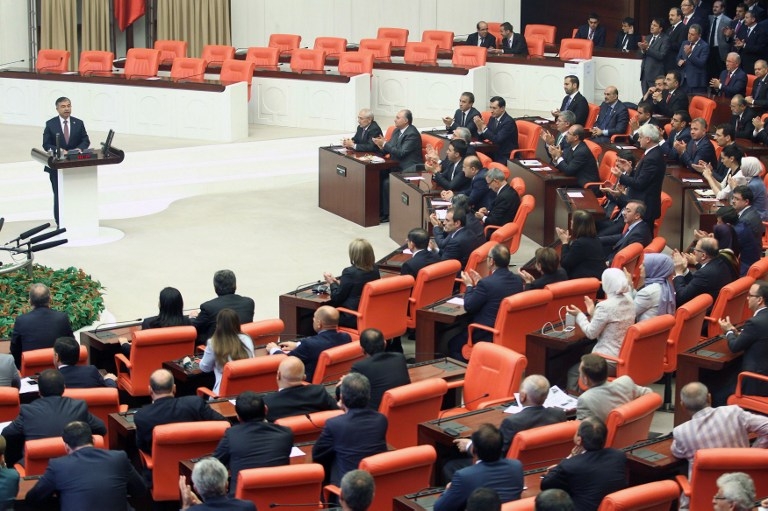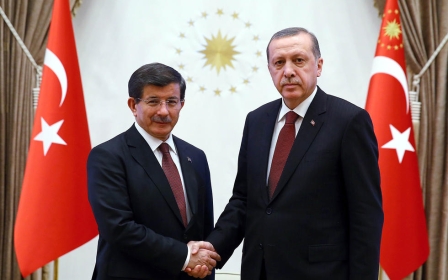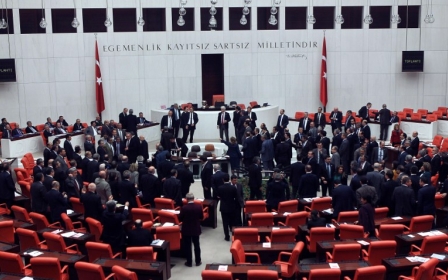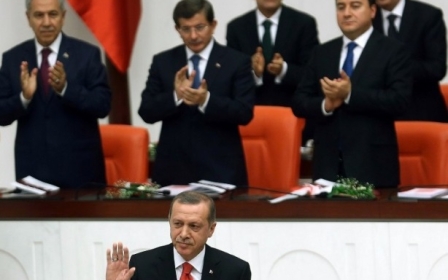Turkish government coalition talks delayed

Turkey’s coalition government talks have been delayed as the new parliament is yet to agree on the makeup of a key decision-making body, reported Turkish media on Tuesday.
After 7 June elections in which the previously ruling Justice and Development party (AKP) lost its overall majority, the country has been pushed towards forming a coalition, but the contours of the new government remain far from agreed.
While President Recept Tayyip Erdogan repeatedly declared that he will give the mandate to form a new government only after parliament establishes its board of spokespersons, the new assembly has not been able to agree to the makeup of the board, delaying the procedure to kick off coalition talks.
The board of spokespersons is a cross-party body established in order to reach consensus among political party groups on their participation in parliamentary activities.
It is responsible for making recommendations to Turkey's parliament, the Grand National Assembly, on issues such as determining the days and hours of debates, setting and changing the agenda of the assembly, and determining the number of committee members.
Parliament Speaker Ismet Yilmaz on 7 July announced that all four parties – AKP, the Republican People’s Party (CHP) and the Peoples’ Democratic Party (HDP) and the Nationalist Movement Party (MHP) - must agree on the board membership in order to move forward with coalition talks.
Yilmaz, who was defence minister in the previous AKP government, was named as the country’s 26th parliamentary speaker earlier this month.
According to Hurriyet Daily News, the conservative, religious-leaning AKP, the secular, Kemalist CHP and the pro-Kurdish leftist HDP agreed on having an 18-member board, while the far-right, nationalist MHP insist on having a 15-member board.
According to the consensus of the three parties, the board would have consisted of eight members from the AKP, four members from the CHP and three members each from the MHP and the HDP.
But due to the MHP’s objection, Yilmaz is expected to present the formula agreed upon by the three parties to a full session of parliament on Tuesday.
Deputies are expected to vote at the plenary session in line with the alliances made by their parties, in order to resolve this issue, reported Hurriyet.
So far, only CHP has reported the names of its candidates for the parliamentary board. And while MHP and HDP have reportedly designated their candidates, AKP remains undecided about who its potentially eight members of the board will be.
The AKP is expected to elect its candidates to the board at a parliamentary group meeting on 9 July, reported Hurriyet.
If however the AKP does not finalise its list of candidates by Thursday, the procedures for electing a new parliamentary board may be further delayed, meaning Erdogan’s provision of a mandate to form a government may not be until next week.
Should the parties fail to form a coalition within 45 days, Erdogan can then call early elections, an option he has warned he will use should the talks fail.
New MEE newsletter: Jerusalem Dispatch
Sign up to get the latest insights and analysis on Israel-Palestine, alongside Turkey Unpacked and other MEE newsletters
Middle East Eye delivers independent and unrivalled coverage and analysis of the Middle East, North Africa and beyond. To learn more about republishing this content and the associated fees, please fill out this form. More about MEE can be found here.




